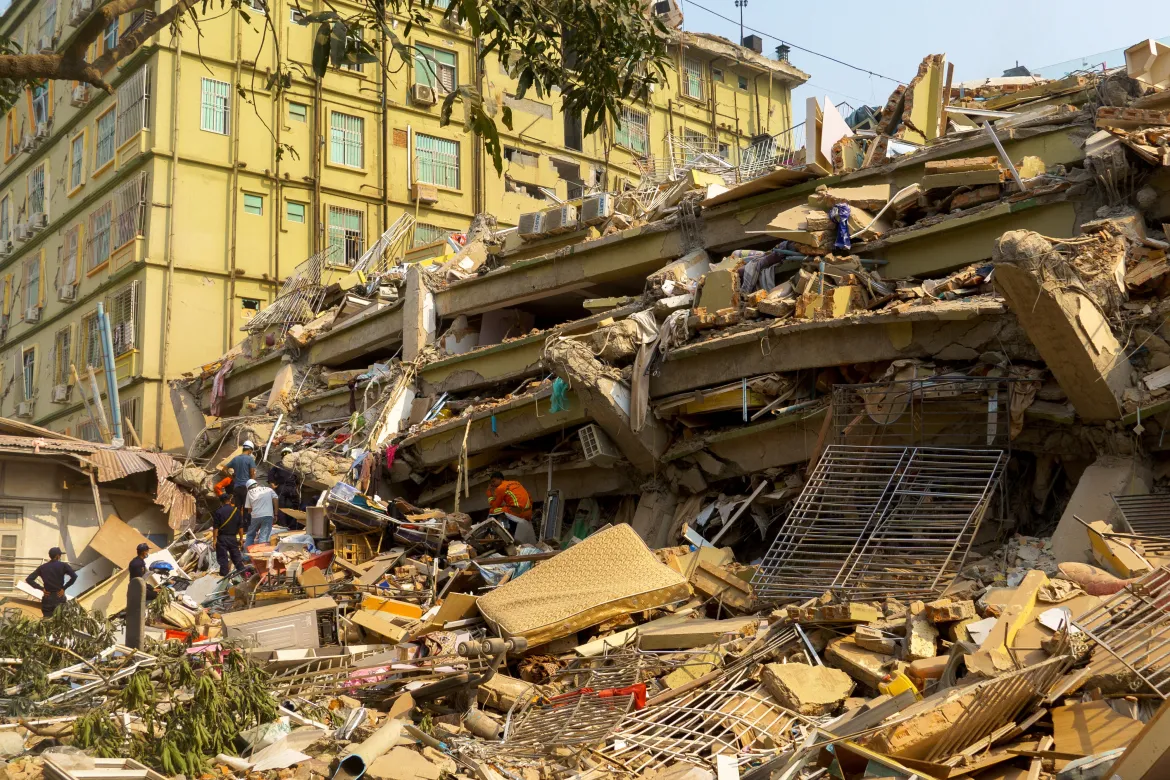Latest reports have shown that five days after the deadly earthquake in Myanmar, buildings have continued to collapse, creating perilous conditions for rescuers as they attempt to extricate survivors from the rubble.
Available data shows that more than 2,700 people were killed in the 7.7-magnitude quake, with thousands more injured, according to Myanmar’s military junta. Hundreds more remain missing, meaning the death toll is almost certain to rise.
The Myanmar Fire Services Department on Wednesday shared video of a heartwarming moment in the military’s purpose-built capital Naypyidaw, where workers pulled a man from the rubble more than 100 hours after the quake, a miraculous rescue that offered a rare moment of hope.
The man appeared tired and disheveled as he was pulled out of an air pocket between broken slabs of concrete, to a round of applause. A day earlier, a 62-year-old woman was similarly pulled from broken slabs of concrete in Naypyidaw.
Elsewhere, a team of Chinese rescuers on Monday pulled four people – including a five-year-old child and a pregnant woman – from the rubble. Structurally vulnerable buildings in the country are still collapsing as tremors continue, according to human rights organizations, highlighting the dangers of the rescue mission.
Two hotels collapsed Monday night near the epicenter in Mandalay, the country’s second most populous city, after people went back to the structures days after the quake.
“With these additional tremors, fatalities are still occurring,” said Michael Dunford, Myanmar director at the United Nations World Food Programme. “Many people are still sleeping out in the open on the streets or in the parks because they are too scared to go back into their homes. And of course, this is hampering our efforts to reach them and to provide the type of support that they need.”
Humanitarian organizations are continuing to stress the need for urgent aid, especially to more remote areas of the country. Even before the quake, four years of civil war had left millions without adequate shelter, and battered health and communication infrastructure.
In Sagaing town, near the epicenter of the quake, residents have described scenes of heartbreak and desperation as they wait for urgent medical supplies and food.
Rights group Amnesty International spoke to three residents, who said there was a rising need for body bags, torches, and mosquito repellant coils. They also told the group that the military, which largely controls the town, was imposing “strict surveillance” for light vehicles traveling to Sagaing from Mandalay.
Story was adapted from CNN.
